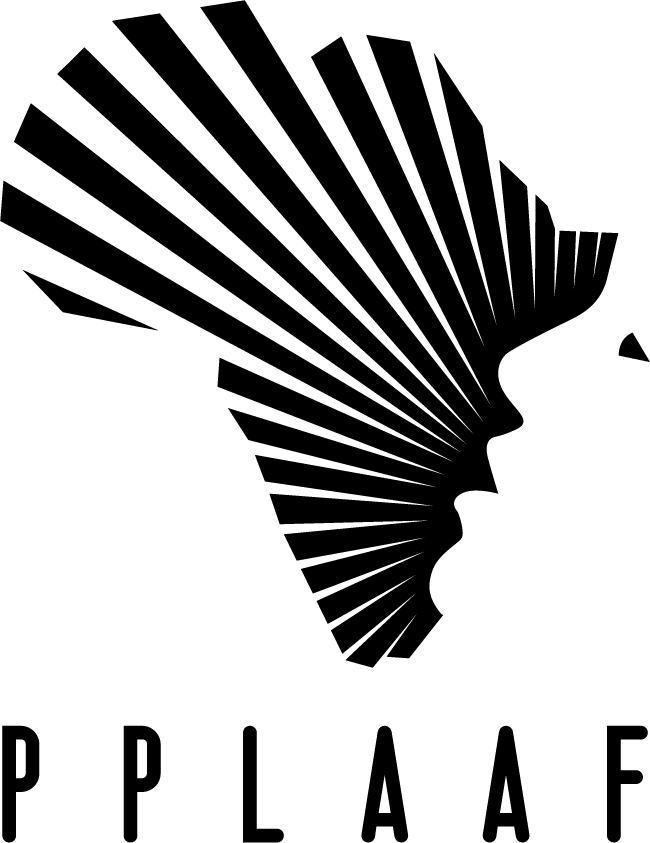“As Zimbabwe embarks on a whistleblower legislation, we must ensure that it fully protects whistleblowers and that citizens are sensitised on its provisions”
Tafadzwa Chikumbu
Whilst the act of exposing corruption and related offences in the private and public sectors largely depends on whistleblowers, there is currently no adequate whistleblower protection in Zimbabwe, putting them in great danger of retaliation. Despite this risk and the lack of a protective framework, whistleblowers in Zimbabwe still play a pivotal role in exposing corruption. Over the past decade, civil society in Zimbabwe has fought for the country to develop and adopt comprehensive stand-alone whistleblower protection legislation.
From 28 – 29 June 2023, the Platform to Protect Whistleblowers in Africa (PPLAAF) in collaboration with the Transparency International Zimbabwe (TI-Z) and the Friedrich Naumann Foundation (FNF) Africa hosted a Whistleblower Protection Workshop in Harare, Zimbabwe. The workshop sought to empower participants to advocate for practical and policy changes to support whistleblowers through increasing their understanding of the risks faced by whistleblowers, learning about legal frameworks pertaining to whistleblowing, and receiving guidance on responsible reporting and protecting sources.
Whistleblowing in Zimbabwe: Legislation and Perceptions
For the first session of day one, Tafadzwa Chikumbu of TI-Z, focused on local perceptions and attitudes around reporting corruption and whistleblowing. Specifically, defining whistleblowing in the context of corruption reporting.
Chikumbu summarized the existing legal framework for fighting corruption. Overall, these conventions and laws actively support the protection of whistleblowers. In addition, creating anti-corruption agencies in line with Chapter 13 of the constitution also promotes whistleblowing. However, some of the legal frameworks (e.g., the AUCPCC and the Prevention of Corruption Act Chapter 9:16) include punishments for people who make false and malicious reports.
Although there is some progress in the legislative framework, the attitudes and perceptions in reporting corruption and whistleblowing in Zimbabwe are disconnected from that progress. Corruption in contemporary Zimbabwe is complex in nature, having reached endemic levels, with institutional dimensions in some cases. This contributes to citizens’ low trust in reporting corruption. In this context, the perceptions of citizens to whistleblowing and other anti-corruption activities are important.
The group discussion revealed that the prevailing perceptions are that corruption pays and that concerned citizens will actually bear the brunt of participation in fighting corruption. Some held the view that whistleblowing is a ‘Western’ phenomenon because in our cultural context, it does not generate a response from the authorities for various reasons. Generally, in some cultures whistleblowing is frowned upon and those engaged in it might be frowned upon too.
Overall, political will in the fight against corruption cannot be adequately demonstrated with the mere introduction of legislation, but through a range of tangible supportive efforts, namely respect for the rule of law, strengthening and respecting the independence of anti-corruption actors, providing them with adequate financial and technical expertise and ending the culture of impunity.
Whistleblowing in Africa
Julia Ntumba Kanyinda of PPLAAF focused on the current status of legislation on whistleblowing and whistleblower protection in Africa. Whistleblower protection generates raging debates globally for various reasons because of the associated risks which range from professional (e.g. occupational detriment); legal reprisals (e.g. lawsuits and judicial harassment); cybersecurity attacks; sexual harassment as well as social consequences (e.g. ostracization and reputational damage).
When it comes to implementing whistleblower protection protocols and frameworks, there are several noteworthy challenges in Africa, including the general poor access to documentation. There is also the issue of wording, with countries such as the Ivory Coast having legislation that does not clearly mention whistleblowers but rather “victims”.
Ms Ntumba highlighted a few recommendations which can help deal with the challenges to whistleblower protection in Africa when drafting whistleblower protection legislation:
- There must be a sound, clear process and inclusion of a broad spectrum of potential whistleblowers such as lawyers etc.
- There must be clear acknowledgement of different types of whistleblowing which need to be catered for in legislation, such as whistleblowing on human rights violations and various professional contexts.
- There is also the possibility of external reporting mechanisms. For example, in companies where the whistleblower reasonably believes that proof of corrupt practices will be deleted or be tampered with if the cases are reported internally.
- There should be a budget allocated and other physical resources which need to be
- There is the need to create an independent body, charged with the responsibility to protect whistleblowers.
- There must also be protections built into the framework to protect whistleblowers from being incriminated by political elites.
Defining Protection
Pusetso Morapedi of PPLAAF implored stakeholders to view whistleblowing as occurring within a complex ecosystem, with boundaries spanning an internal and external environment, involving a web of individual and institutional actors. This would imply coordinating diverse actors to act with unity of purpose to ensure the successful protection of whistleblowers.
Morapedi referred to legislation protecting whistleblowers in South Africa and Namibia. In terms of critical issues in relation to the South African jurisdiction, she highlighted some gaps notwithstanding the 2017 amendments. For example, whilst whistleblowers in principle are not liable in a civil or criminal case, they regularly face occupational detriments such as criminal and civil actions instituted against them as a retaliatory measure.
Morapedi further explained that the state of readiness of whistleblower protection in a country is important because the public will think that they will be protected when there is no tangible capacity. An example is the delay in establishing the Whistleblower Office in Namibia notwithstanding the passing of the relevant legislation in 2017.
Furthermore, there is a risk of whistleblowers going to organisations without the relevant mandate and capacity, such as nongovernmental organisations (NGOs).
In addition, if whistleblowing is not linked to prosecution, it leaves a gap because then there is no point in collecting evidence. She recommended measures to curb exposure due to inaction after whistleblowing, such as providing reporting individuals with feedback within a prescribed time on what is being done with their reports.
Whistleblowers and Journalists: The Relationship
Gabriel Bourdon-Fattal of PPLAAF facilitated the first session of day two, focusing on the relationship between whistleblowers and journalists. Bourdon-Fattal noted a handful of important tips for journalists to keep in mind when dealing with whistleblowers:
- It is important for journalists to note that sources are not always whistleblowers and people are motivated by different things to bring corruption issues to light.
- With regards to the impact on whistleblowers, if a source is identified they may face a range of complications and/or retaliation, ranging from financial, psychological and other pressures coming from reported parties who are sometimes their employers.
- A journalist may sometimes develop an emotional attachment with a source who then withdraws consent at the last minute.
- The relationship between a journalist and a source, therefore, needs to be handled with sensitivity.
- Continuous delays by the media to publish for internal reasons opens a wider window where retaliation against whistleblowers can occur.
Furthermore, whistleblowers sometimes go public by choice, especially after they are identified. This can be positive for the whistleblower as the public gets to understand their motivations. If their motivations are good, it creates a good culture around whistleblowing.
Media Regulations in Zimbabwe
Nqaba Matshazi of the Media Institute of Southern Africa (MISA- Zimbabwe) went over the various media regulations in Zimbabwe that have implications for whistleblowing and reporting on whistleblower cases.
Of prime importance is the need for both whistleblowers and journalists to be protected. In this regard, he hoped that the pending whistleblower legislation is being approached with meaningful intent. The Media Practitioners Bill, which could also support whistleblower protection, is also still at the legal principles stage. Constitutionally, journalists’ sources in Zimbabwe are protected, however, there is still no clear protection in subordinate legislation, presenting challenges.
In his view, no meaningful whistleblower protection can be achieved without the right to freedom of expression (which includes access to information). Citizens cannot make informed decisions without information, and whistleblowers are critical in providing it. Society also learns of human rights violations, corruption or other illegal practices through whistleblowing. Ultimately, it is extremely difficult to be an investigative journalist without access to information.
Matshazi outlined several structural preconditions for successful whistleblowing, ultimately avoiding all actors working at cross-purposes. These are as follows:
- Recognise the costs to the whistleblower, and prompt them to think through ahead of time how to cope when the story breaks
- Verify material with the public interest in mind
- Digital security is key
- Journalists should not ‘insert’ themselves in the story
- Privacy is important to protect sources
For more practical tips for journalists, refer to PPLAAF’s guidelines.
PPLAAF is a non-governmental organisation established in 2017 to protect whistleblowers, as well as to advocate and engage in strategic litigation on their behalf when their revelations deal with the general interests of African citizens.
For more information on PPLAAF, please visit:
PPLAAF’s website: https://pplaaf.org
Facebook: https://www.facebook.com/PPLAAF/
Twitter: @pplaaf
Email: Info@pplaaf.org




